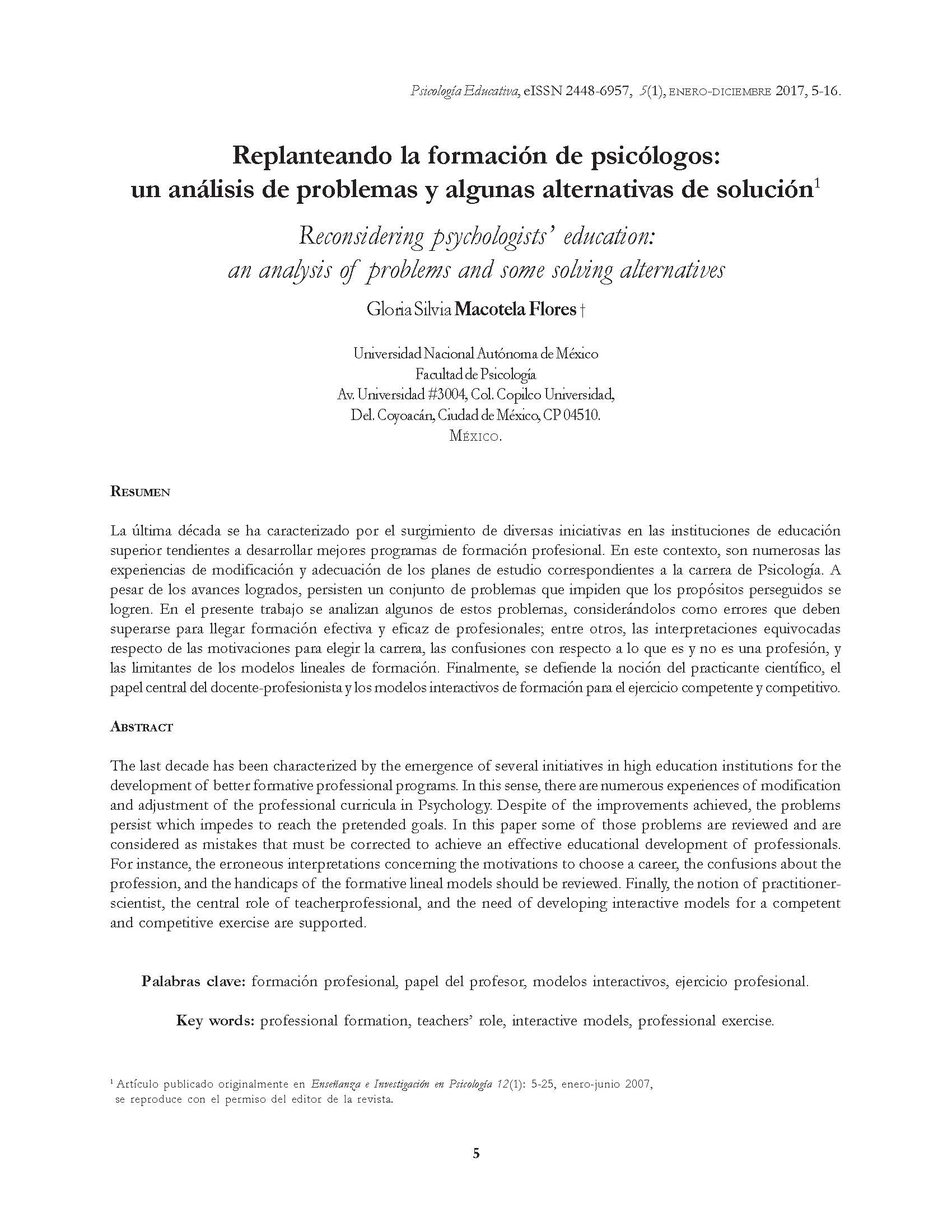Abstract
The last decade has been characterized by the emergence of several initiatives in high education institutions for the development of better formative professional programs. In this sense, there are numerous experiences of modification and adjustment of the professional curricula in Psychology. Despite of the improvements achieved, the problems persist which impedes to reach the pretended goals. In this paper some of those problems are reviewed and are considered as mistakes that must be corrected to achieve an effective educational development of professionals. For instance, the erroneous interpretations concerning the motivations to choose a career, the confusions about the profession, and the handicaps of the formative lineal models should be reviewed. Finally, the notion of practitioner- scientist, the central role of teacherprofessional, and the need of developing interactive models for a competent and competitive exercise are supported.
References
Barlow, D. H., Hayes, S.C. y Nelson, R.O. (1984). The scientist-practitioner: Research and accountability in clinical and educational settings. New York: Pergamon Press.
Flexner, A. (1985). Undergraduate medical education. New Zeland Medical Journal, 98(792), 1049-1052.
Gonczi, A. y Athanasou, J. (1996). Instrumentación de la educación basada en competencias: perspectivas de la teoría y práctica en Australia. En A. Argüelles (Coord.) Competencia laboral y educación basada en normas de competencia. México: Limusa.
Hager, P. y Beckett, D. (1996). Bases filosóficas del concepto integrado de competencia. En A. Argüelles (Coord.) Competencia laboral y educación basada en normas de competencia. México: Limusa.
Hickson, D. y Thomas, M. (1969). Professionalization in Britain: A preliminary measurement. Sociology, 3, 37-53. Kanfer, F. H. (1990). The scientist-practitioner connection: A bridge in need o constant attention. Professional
Psychology: Research and Practice, 21, 264-270.
Macotela, S., Flores, R., Jiménez, E., Paredes, H., Seda, I. y Vega, L. (2002). Un modelo de formación para la intervención psicológica en escenarios educativos. Texto inédito. México: Facultad de Psicología de la UNAM.
Macotela, S. y Paredes, H. (2003). Formación de psicólogos escolares con base en un modelo de supervisión experta en campo. Enseñanza e Investigación en Psicología, 8(1), 5-25.
Peterson, D. R. (1997). Educating professional psychologists: History and guiding conception. Washington, D.C.: American Psychological Association.
Richardson, V. (1990). Significant and worthwhile change in teaching practice. Educational Researcher, 19(7), 10-18.
Schön, D. (1987). Educating the reflective practitioner: Toward a new design for teaching and learning in the profession. San Francisco; Jossey-Bass.
Schön, D. (1992). The reflective practitioner. New York: Basic Books.

This work is licensed under a Creative Commons Attribution-NonCommercial-NoDerivatives 4.0 International License.
Copyright (c) 2024 Universidad Nacional Autónoma de México


